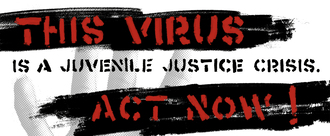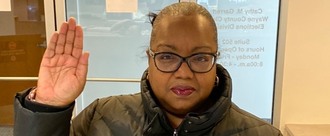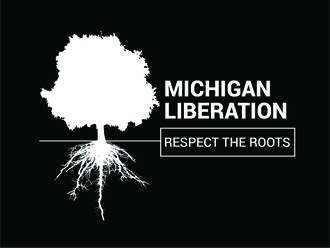- Featured
- Afropunk Army
- Community Control
- Confederate Symbols
- Cop Watch
- Corporate Accountability
- Criminal Justice Policy
- Drop/Bring Charges
- Economic Justice
- Education
- Employment Discrimination
- End The War on Black People
- Environmental Justice
- For-Profit Colleges/Universities
- Gulf Coast
- Housing Rights
- Immigration
- Invest-Divest
- Media Accountability
- Music Industry
- No Guns in Schools
- Open Internet
- Police Accountability
- Political Power
- Pop Culture
- Private Prisons
- Reparations
- Reproductive Justice
- Right Wing Racism
- School-to-Prison Pipeline
- Sports
- Voting Rights
- Wrongful Imprisonment
- More
-
Tell Pres. Aoun and Chief Davis to Publish NUPD Policing Data and PoliciesWe are members of the Northeastern University (“NU”) and Fenway, Roxbury and Boston communities who are outraged at the continuing systemic violence against Black, Brown, and Indigenous people. We stand against the manner in which systemic racism, racial violence, and white supremacy is institutionalized at Northeastern University including through NU’s investment in and operation of a private police force. The fight against institutionalized racism requires that we divest from organizations and systems that harm Black, Brown, and Indigenous people. We must rebuild our institutions to engage in life-giving practices. In this vein, we support the #BlackatNU platform’s call to build sustainable alternatives to policing, to fund efforts to end systematic oppression of Black people, to terminate interagency agreements with public law enforcement agencies, and to demilitarize and disarm Northeastern University Police Department. Further, we endorse #BlackVoicesMatterNEU’s demands regarding financial support to retain students of the African diaspora, increasing access to health insurance and hiring Black health practitioners and therapists, observation of Black historical celebrations, diversity and cultural competency training, and recurring town hall meetings on anti-Black racism. Undoing racism inherent in the function of our institutions requires that we understand and confront the harms that our systems create. Accordingly, we seek transparency from the Northeastern University Police Department.958 of 1,000 SignaturesCreated by Defund NUPD
-
Care Not Cops: FCUSD Students Against SROsThe most impressionable time for a student is during their years of mandatory education. These years should be centered and catered towards providing the absolute best educational experience that is based on accurate, factual information in a safe and comfortable learning environment. This cannot be accomplished with the use of police on campus and anti-Blackness systemically perpetuated in the curriculum. The removal of police officers from campus as well as reformed curriculum that addresses racism in its actuality will foster the growth necessary on FCUSD campuses. For more information, contact us at: Instagram: @genup.fcusd & @cordovahighbsu Facebook: GenUp FCUSD If you have a testimony in regards to your experience with racism, discrimination, or police on campus, don’t hesitate to leave a comment as you sign the petition.1,086 of 2,000 SignaturesCreated by Blessings Norwood
-
Demand for the University of Washington Administration to Meet the Needs of Black Students on CampusThe University of Washington prides itself on diversity which barely exist at the institution. After numerous conversations between President Ana Marie Cauce and the Black Student Union about our experiences and how we can better improve the diversity at this university, President Cauce has overlooked our experiences and refuses to take the actions necessary to making BIPOC students feel safe and welcome on campus. We have had enough. Thus Black Students will work together with faculty, allies and local activist to ensure that our demands are met. Below are brief descriptions of each demand: 1. BREAK ALL TIES WITH SPD. Both formal and informal in the form of contracts, agreements, and MOUs. We suggest taking the following steps: a. Immediately stop handing over people detained by UW Police Department to SPD custody b. Stop using SPD to respond to public safety needs, including referrals for welfare checks under the Safe Campus program. c. Stop using SPD for additional security for any events, including sporting events, concerts, and ceremonies. 2. DISARM AND DIVEST FROM UWPD. Arming UWPD officers is excessive and unnecessary. Black students are already traumatized by the violence perpetrated to Black individuals by the hands of police. Arming the UWPD only puts Black individuals in constant fear, worry and frankly more at risk. The use of police dogs must be banned. Many communities of color in the US associate police dogs with the terror of state violence. We need to divest from UWPD and reallocate those funds into our community 3. ALLOCATE FUNDS TO BLACK RSO’S AND THE AMERICAN ETHNIC STUDIES DEPARTMENT. Instead of spending a ridiculous amount of money on UWPD, the University of Washington should invest in departments/resources that cater to the needs of its black students. It should not be students' jobs to spend out of pocket money to make students more comfortable, and or raise money for scholarships for its students. There also needs to be an increase in funding for the AES departments. This would not only help students have more resources and to help expand their learning, but increase the pay for the faculty who work in those departments. 4. HIRE MORE BLACK FACULTY. According to the Diversity Metrics Data Book by the Board of Regents, as of 2018, 68% of faculty is white, while 1.7% is Black. This statistic is embarrassingly low for an institution that prides itself on diversity and equity. The demand for more Black faculty dates back to 1968, with the first year of the Black Student Union here at the University of Washington. Today, 52 years later, this demand has not only been ignored, but is still necessary with the growing population of the UW. The lack of representation of Black faculty not only prevents students from having role models who they can relate to, but it sends a subtle message that only white people are capable of teaching at a higher level, which is simply, untrue. 5. INCREASE THE DIVERSITY CREDIT REQUIREMENT AND MAKE AFRICAN STUDIES A MAJOR. The current diversity requirement for UW students is 5 credits. Again, for an institution that prides itself on diversity, this is embarrassingly low. One 5 credit class will not provide students with enough historical background to enter the world an anti-racist. Students must be exposed to the atrocities that have been committed upon Black and brown folks, and how these communities are impacted to this day. Finally, African Studies should not only be an option for a minor, but a major. It is unjust that there is a major for Asian Studies, European Studies, and Latin American Studies, but not African Studies. 6. REMOVE STATUES OF RACIST FIGURES. Statues in place at the University of Washington are preservers of our dark past. The George Washington statue, in particular, symbolizes a man who owned over 300 Black slaves and profited from their labor. This is not a history that should be glorified and celebrated as it perpetuates white supremacy and preserves its historical imposition. Thus, the George Washington Statue, along with all others that symbolize racist figures, should be removed from the University of Washington. 7. FUND AND EXPAND MENTAL HEALTH RESOURCES FOR UW STUDENTS. Currently, the waiting time to talk to a mental therapist can be more than 3 consecutive weeks. For Black students, the detriment of such a long waiting time is exacerbated by the severe lack of Black therapists, who tend to understand and empathize with our experiences. It's been shown that Black students feel more comfortable talking with Black therapists as opposed to non-black ones; how can one Black therapist be enough for the population of Black students at UW and why should we have to wait for urgent mental issues? In addition, the students are limited from accessing mental health services as they are often costly and require insurance coverage, which may not be affordable for students. Thus, the University of Washington should expand and fund affordable services, along with hiring more Black therapists. #DownWithWashington #KeepThePressureOn #DisarmUWPD262 of 300 SignaturesCreated by Black Student Union UW
-
Tell MDCPS to Allow the People to Testify for Budget HearingsMDCPS is the nation's fourth largest school board district, with over 350,000 students, and is the largest employer in the county. In the midst of a pandemic and economic crisis, we all know public schools will be one of the worst hit, with severe budget cuts concurrent with over-policing policies. Join Power U in demanding that schools be sites of support and holistic student development.759 of 800 SignaturesCreated by Power U Center for Social Change

-
Defunding BGPDDuring our council meeting on 6/22/2020, many concerned residents commented that the city council needs to reconsider their proposed budget for The Bell Gardens Police Department. However, individuals who oppose the defunding of BGPD created a petition that was not representative of our community’s needs and concerns. Their petition received a mere twenty signatures. A problem expressed via their petition was that the Police Explorers program would be heavily impacted. However, this program receives only four-thousand dollars (to pay salaries for police officers) of the BGPD’s 15 million dollar budget. The program depends on extensive fundraisers, NOT the police budget. If funds were reasonably invested, we would be able to fund many community programs that offer a space for youth development. This petition is meant to demonstrate to the city council that many Bell Gardens residents do not support a budget that allocates 53% of our funds to BGPD. Many residents believe that we should divest (incrementally remove funding from the police budget) in our police department and invest into other resources in our community. This petition will record Bell Gardens’ community members responses to our proposed city budget and alternatives to funding.614 of 800 SignaturesCreated by Estephanie Garcia
-
Removing Discriminatory Hair Policies from Henrico County SchoolsStudents of all colors and with all hair textures should be able to do the following at school: protect their hair and proudly wear cultural hairstyles. These policies were put in place with the ignorance of African American hair care and their enforcement criminalizes Black children and interferes with their learning.670 of 800 SignaturesCreated by Naomi Davis
-
Diverse Appointments to the NJ Police Training CommissionThe violence black people experience at the hands of police, and the racial disparity in incarceration rates in NJ is cruel, intolerably high, and must end. Inclusion of African Americans on the PTC allows representation for the most adversely affected community to help shape Police training and policy statewide. It provides African Americans with influence over creating and implementing changes to end systemic racism in policing, which leads to violence, including death, and over representation in prison and jail populations.480 of 500 SignaturesCreated by Rev. H William Rutherford
-
Tell D.C Leaders: We Demand Police-Free Schools!The same police that are killing Black people in the streets and that continue to harass Black youth in the community, are the same police that are in our schools. We cannot continue to put our youth in harms way! We demand POLICE FREE SCHOOLS! We demand an end to the school-to-prison pipeline. It is simple: Black youth in D.C have been screaming "Love Us. Don't Harm Us"- divest from police in our schools and invest in the social-emotional health and well-being of youth! D.C is the MOST POLICED jurisdiction in America and Metropolitan Police Department's largest contract is with D.C. Public Schools. MPD currently receives $25 million to police and criminalize our youth! This increases the likelihood that adolescent behavior or responses to trauma will not be met with support but further harm. 74% of Black youth will not get the support they need. Instead: - Nearly 100% of all school expulsions are of Black youth, nearly 100% of school based arrest are of youth of color - D.C. police are also responsible for harassing and handcuffing Black youth as young as 9 years old. - 60% of girls arrested in D.C are under the age of 15. - Black girls in D.C are 30 times more likely to be arrested than white youth of any gender identity. - Often girls are disciplined and referred to police for their responses to sexual violence. This creates an unsafe and unwelcoming environment for girls, and compounds the trauma that survivors of gender base violence experience. Always, but especially now, our Black youth need love, not harm! We need to ensure that our young people have what they need to learn, that our young people have increased access to mental health professionals to address the heightened trauma caused by COVID -19 and, rampant police violence and racism. We need your support to protect Black and Brown youth from further harm and to preserve their right to live and thrive!3,643 of 4,000 SignaturesCreated by Samantha Davis

-
#Decarcerate NE: Prevent a COVID-19 Outbreak in Nebraska Jails & PrisonsIncarcerated and detained Nebraskans are facing a high risk for a COVID-19 outbreak. Not only are these facilities operating above 150% capacity, but people live in unsanitary spaces. It is not a question of if COVID-19 will enter these facilities, but when. “It doesn’t matter what crime you committed. This pandemic is affecting everyone,” Dominique Morgan, Executive Director of Black and Pink explains, “If you were selling a little bit of dope, it shouldn’t be a death sentence. But that’s what COVID-19 is. These people inside can’t choose to social distance. They can’t say, ‘No, you can’t touch my body and shake me down.’ They don’t get to decide who comes into their institutions. They have no autonomy over their body. Imagine going through this pandemic and the fear we have as a community. Now imagine having no power. Being Black. Being trans. You have to have empathy at this time.” Pain and violence are a virus themselves. Not only do they spread without urgent corrective action, but punishment replicates pain and violence. We have space for meeting people where they are at and for healing at home in our communities. We see them everyday. Maybe we give a smile or a nod. Put people in cages, isolated and separated from communities, and we lose their humanity. We forget they too are worthy of respect and love and life. They too have inherent value. We recognize their value. That’s why Black and Pink, along with 13 other Nebraska community organizations, joined in solidarity to demand clear and specific actions for Governor Ricketts and NDCS Director Frakes to immediately implement and reduce the impact of COVID-19 including: 1. Reducing the dangerous overcrowding conditions in NDCS facilities, including the immediate release of individuals at high risk of contracting COVID-19 2. Issuing a publicly accessible Crisis Management Plan, including accountability measures for handling an outbreak 3. Prioritizing the health and safety of currently incarcerated individuals by ensuring appropriate access to medication, prohibiting use of punitive processes, and prioritizing COVID-19 treatment at hospital settings NOT facility medical units/infirmaries. The full text of the letter can be found here: https://drive.google.com/file/d/1J0sAfQIF57WJwJ5gHw__855VSa_X0uJ9/view?usp=sharing Join us in demanding that state officials release their COVID-19 emergency response plan and share how they plan to protect the health of incarcerated Nebraskans during this health crisis! #DecarcerateNE #HealthNotHell HELP US AMPLIFY: Share this petition on Twitter (copy text): Join me and sign this petition to demand that @GovRicketts and @necorrections Director Frakes release their COVID-19 emergency response plan and take immediate action to protect incarcerated people! #DecarcerateNE #HealthNotHell https://bit.ly/2Uy7TA4 Share this petition on Facebook (copy text): I refuse to wait silently while state officials endanger the health and lives of incarcerated Nebraskans. Join me today and sign this petition to demand that Governor Ricketts and NDCS Director Frakes release their COVID-19 emergency response plan and take immediate action to protect incarcerated people! #DecarcerateNE #HealthNotHell https://bit.ly/2Uy7TA4478 of 500 SignaturesCreated by J. Petersen
-
COVID-19 is A Threat to Our Youth - Tell Maryland to #BringOurKidsHomeMaryland incarcerates hundreds of children across seven youth jails centers and six state-run youth prisons. Like adult jails and prisons, juvenile facilities are inherently high-risk environments where the disease can spread quickly. Children are housed closely together in units or dormitory-style housing, precisely the kind of conditions that have led to the closure of universities all over the country. Even in well-run facilities, the social distancing recommended by the CDC is simply impossible. In such a setting, most of what we can do to protect against the spread of the virus is detrimental to children’s well-being. DJS stopped allowing visitors weeks ago, meaning lawyers can’t visit their clients and families can’t visit their children. School and other programming is cancelled. The use of solitary confinement, which is deeply traumatizing for a child and yet, DJS is already using increased isolation in an attempt to slow the spread of COVID-19. All of these factors not only put a child’s emotional health at risk, they also jeopardize their long-term rehabilitation. Research by health care experts shows that incarcerated populations are most at-risk during a public health crisis. COVID-19 spread quickly in enclosed spaces such as cruise ships and nursing homes and it will spread just as quickly in detention centers, prisons, and jails. Contagious viruses such as COVID-19 spread much faster in detention centers and prisons as incarcerated youth are in close quarters and sometimes in unsanitary conditions. Behind bars, youth are not able to participate in proactive measures to keep themselves safe, such as social distancing, frequently washing hands, or staying in sanitized spaces. Infection control is a challenge in these situations as incarcerated youth are often in large congregate and communal settings. Even if youth are in individual cells, ventilation is often inadequate. Further, youth jails and prisons are unlikely equipped to meet the medical needs of youth if a COVID-19 outbreak inside juvenile detention or correctional facility should occur. Youth will not have many options to stay away from other youth if they become ill and there are limited infirmary beds. If staff become ill, it will be difficult to provide care and support to youth and if lockdowns are utilized, it will only intensify virus infection rates. The J.S. Weese Carter Center was already forced to close when a vendor could no longer service the facility. To stave off a public health emergency in our juvenile jails and prisons, we must immediately and dramatically reduce the number of children who are incarcerated. For those who remain in custody, we must do all we can to protect their health, safety, and constitutional rights. To that end, we call on state and local officials to take swift action. To protect our young people, those who work in these facilities, and the broader community, we must immediately reduce the number of young people in custody as quickly as possible. We are all feeling fear and uncertainty about the future. Imagine how that terror is magnified for families separated from their children by prison bars. Our youth are the future of our nation and, recognizing that the majority of young people in detention and correctional facilities across Maryland are removed from their communities for non-violent charges and pose no threat to community safety, it is unacceptable to allow children to be separated from their families during this global crisis. No one is sure when this crisis will end. But we know that most kids grow out of delinquent behavior without any system involvement. It's time for Maryland to give young people a chance and #BringOurKidsHome.942 of 1,000 SignaturesCreated by Jenny Egan
-
Kym Worthy-COVID-19 DemandsThe decarceral guidelines below are designed to prevent three things: social spreading, jail “churn,” and the deaths of vulnerable people. Social Spreading In order to prevent the rapid growth of COVID-19 from overburdening our health-care system and claiming lives, both those in secure facilities and the people who work in them, it is the responsibility of decision-makers at every level to prevent and contain the spread of the virus by taking action to promote the most effective strategy in abating the pandemic: social distancing in order to slow “community spread.” The Particular Issue of Jail and Prison “Churn” Jails and Prisons combine the worst aspects of a cruise ship and a large public gathering and, thus, can be the perfect breeding ground for the spread of COVID-19. People are constantly booked into and out of jail and prison facilities and each night guards, vendors, and other jail staff are going home while others are coming in- which results in a massive turnover. For example, more than half of the people in jail are only in there for two to three days. Further, enclosed structures like jails can cause COVID-19 to spread like wildfire and introducing just one person with it can lead to it impacting not just everyone inside the jail or prison but anyone leaving the facility—whether a person who is released or staff returning back to their homes— who then interact with their communities. Preventive Measures Cannot Be Taken in Jails and Prisons. Experts recommend that to protect the people most vulnerable from death or serious illness from COVID-19 that they are appropriately separated through social distancing. Yet separating sick people from well people to prevent the disease from spreading can be nearly impossible in prison due to logistical considerations.1,776 of 2,000 SignaturesCreated by Nicholas Buckingham
-
Michigan Covid-19 Statewide Immediate Release of Vulnerable incarcerated PeopleCovid-19 presents a threat to human life. We believe all human life is valuable, and are ensuring that those most at risk, like incarcerated individuals, are being granted the relief necessary to protect themselves and their families. The particularly vulnerable incarcerated community members and those currently being impacted by the system need support in this moment and not continued trauma. Action is crucially important now to avoid public health mishaps like the scabies outbreak at Huron Valley Prison in 2019. Now more than ever, we need transformative criminal justice action to limit the damage that the system can do during the pandemic outbreak.2,365 of 3,000 SignaturesCreated by Tim Christensen


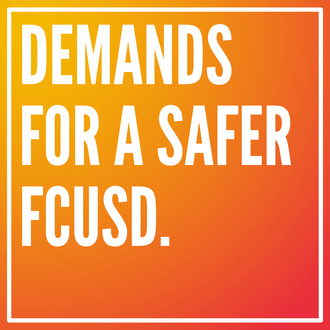


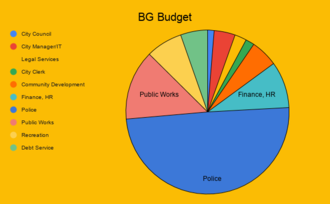

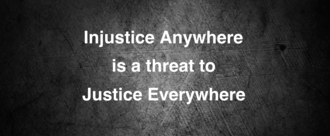
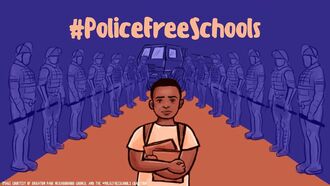
.png)
